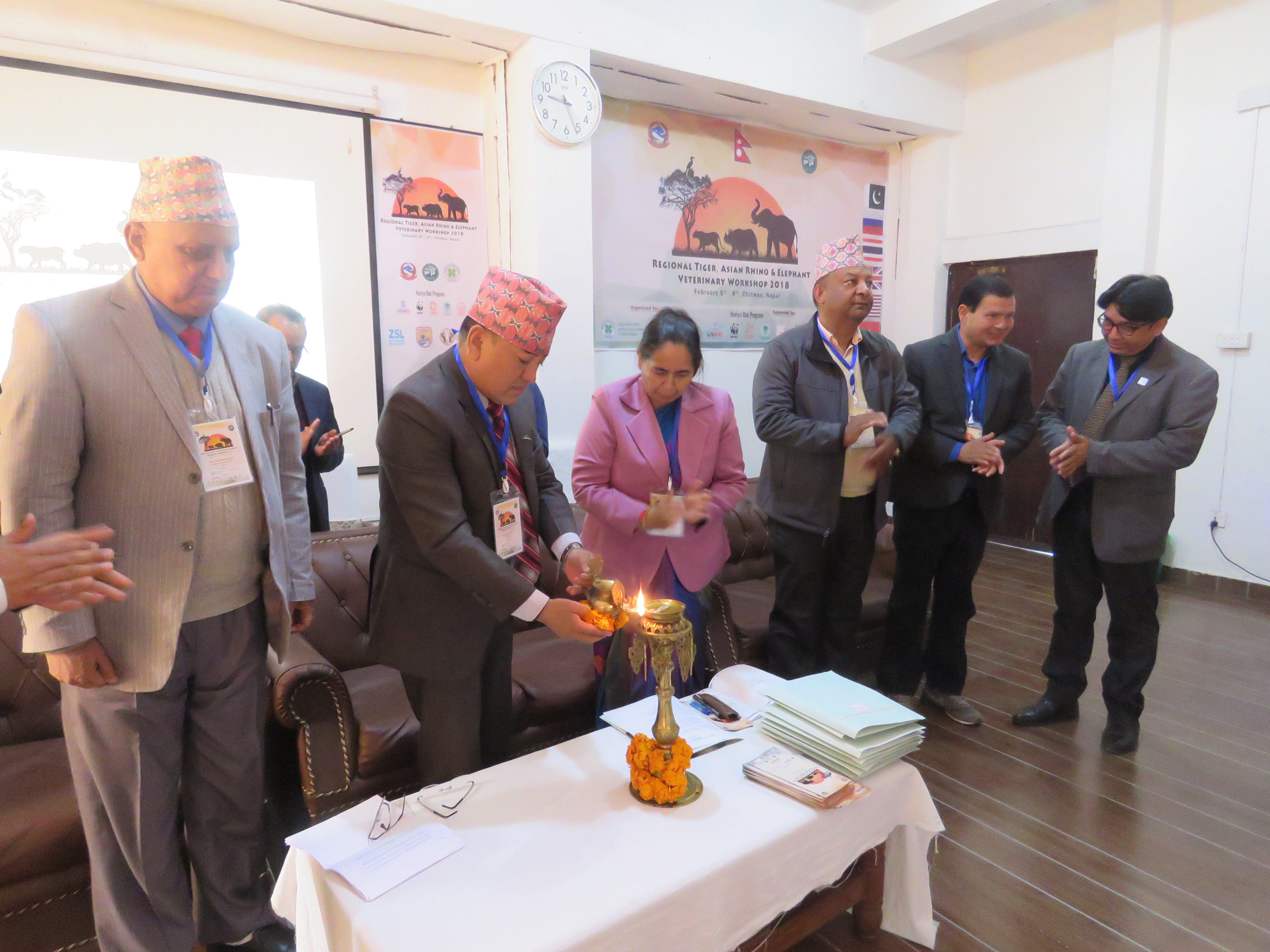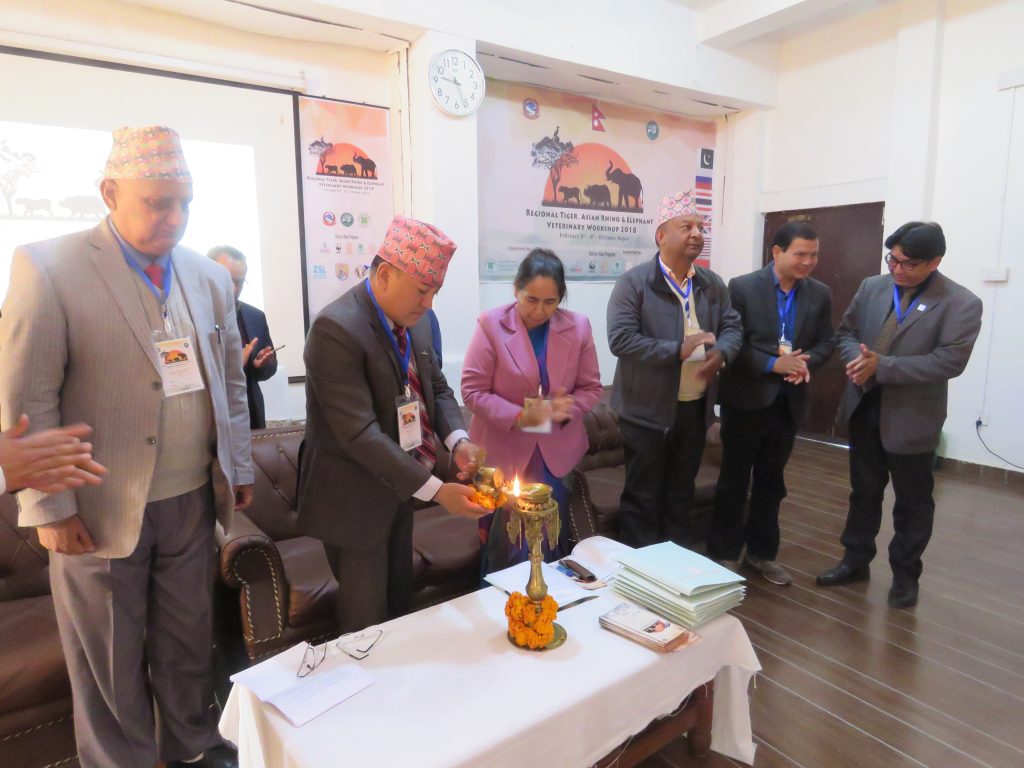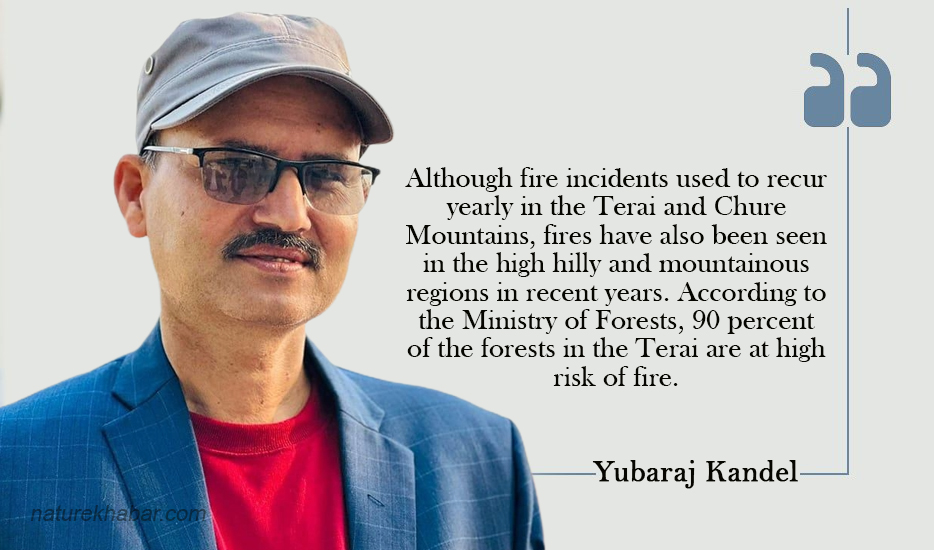International Wildlife Workshop Concluded in Chitwan
- Nature Khabar


An international wildlife workshop 2018 has been concluded on 7th February, 2018 at Sauraha, Chitwan, Nepal. The workshop was jointly organized by the Faculty of Animal Science, Veterinary Science and Fisheries (FAVF), Agriculture and Forestry University (AFU), Chitwan, Nepal and National Trust for Nature Conservation (NTNC) and supported by Department of National Park and Wildlife Conservation (DNPWC), US-Fish and Wildlife Services, Asian Elephant Support, USAID/Hariyo Ban Program, Zoological Society of London (ZSL) Nepal.
Lead authorities of FAVF/AFU, Ministry of Forest and Soil Conservation, Department of Forest, Department of National Parks and Wildlife Conservation, NTNC, Hariyo Ban Program, Chitwan National Parks, Tribhuvan University (TU) participated in the workshop.
Altogether 41 quality papers including 33 oral and 8 posters related to wildlife health and wildlife biology were presented in the workshop. The event was represented by 87 participants from 13 countries including Australia, China, India, Indonesia, Mongolia, Myanmar, Russia, Thailand, UK, USA, Vietnam and Nepal. According to the joint secretary and chief of Biodiversity and Environment Division, Ministry of Forest and Soil Conservation Nepal, Dr. Maheshwar Dhakal, control pest and wildlife diseases are fundamental for healthy ecosystems and doubling the tiger numbers, as well as for rhino and elephant population increment.
The full house of the workshop participants hereby unanimously put forward the following resolutions and look forward that it will help the concerned authorities and stakeholders to move ahead in the future endeavor of not only the veterinary care of mega wildlife species such as Elephant, Tiger and Rhino, but also guides in formulating the strategies for health management of wider range of wildlife species in future.
Following are the resolutions of the workshop:
1. Encourage the concerned agencies/stakeholders to develop national strategies on wildlife health management and its implementation mechanism.
2. Develop qualified technical human resources to work in the field of wildlife health management through improving the education system and incorporating wildlife health management in university curricula.
3. Establish well equipped wildlife hospital under CNP with the support from AFU/NTNC to take care and treat the diseased wildlife species and diagnose the wildlife health problems
4. Establish strong network with the possible organization/institutions working in the field of wildlife regionally or globally and promote young generations to this field.
5. Establish department of wildlife health management under FAVF, AFU and provide wildlife disease diagnostic facilities accordingly.
6. Training and exposure trips to vets and wildlife officials in different wildlife diseases study/research centers within and outside the country.
7. Linking AFU, Department of Livestock Services, and Department of Forest and National Laboratories to work in coordinated approach nationally.
8. Create more vacancies for Veterinarians and Para-veterinarians under the Department of National Park and Wildlife Conservation.
9. Collect and preserve any available material sample for immediate and future research on wildlife.





Feedback